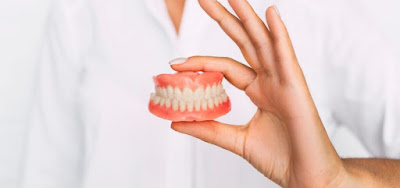Dental expenses: How much can you afford to spend?
Dental expenses can be a huge cost for any business. You may not even know it, but you’re spending money on something that could have a real impact on your bottom line. Here’s how to figure out how much you can afford to spend on dental care and see if it’s worth it.
What are dental expenses.
Dental expenses can vary depending on the type of dental services needed, the size of the denture, and other factors. However, most common dental expenses include:
- Teeth whitening
- bridge work
- Toenail removal
- Dental braces
- Dental whitening products
How much can you afford to spend on dental expenses
The average cost of dental services in the United States is around $12 per visit. This number can change depending on a variety of factors such as the type of service needed, the size of the denture, and other factors. Some tips for reducing your dental expenses include budgeting for at least four visits to your dentist per year, researching which services are best for your specific needs, and using affordable teeth whitening products or braces instead of more expensive options if necessary.
What are some tips for reducing your dental expenses
Some general tips for reducing your dental expenses include:
- Making an appointment early in the morning or late at night so you have plenty of time to see your dentist;
- Make sure you have a reliable travel insurance plan that covers medical costs related to emergencies abroad;
- Try to eat healthy foods while on vacation so you don’t add extra pounds to your luggage;
- Drink plenty of water during trips so you don’t lose any tooth enamel; and
- Use a mouthwash and gargle regularly to keep your teeth clean.
How to reduce dental expenses.
If you’re going to pay your dentist, make sure you do it in a way that humiliates them. If you have to go through the pain of getting dental work done, do it for the heck of it and save up for something better down the line.
Get a good dental hygiene plan
Get good oral hygiene habits before you go to the dentist. Make sure to brush your teeth twice a day, floss daily, and drink plenty of water when you visit the bathroom. You also need to eat healthy foods and avoid eating sugary snacks or drinks while at the dentist.
Use a money saver to improve your dental hygiene
Use any methods possible – from using travel toothpaste and mouthwash products on long flights to using code words like “gentle on the teeth” when interacting with your dentist – to save money on dental expenses. And if you can find ways not to useaching (sucking) tools every day – whether that’s by using an electric toothbrush rather than human-strength ones, soaking your toothbrush in warm water before each use, or using oral floss instead of toothpaste – that will help as well!
Tips for reducing dental expenses.
One of the most important things you can do to reduce your dental expenses is to get a dental insurance plan that covers dental expenses. This will help cover any costs you may have in the future, as well as help you avoid any creditor’s judgments if something goes wrong.
Use a money saver to improve your dental hygiene
When it comes to keeping your teeth clean and healthy, it’s important to use a money saver when possible. One great way to do this is by using a mouthwash or toothbrush with fluoride that’s free or low-cost. You can also try using baking soda or baking powder instead of peroxide for cleaning – both of which are effective at removing plaque and bacteria from teeth.
Use a dental care plan that covers dental expenses
Another key way to reduce your dental expenses is by having an insurance plan that covers dental expenses. This will help protect you from any creditor’s judgments if something goes wrong and will also allow you to seek medical treatment should anything arise regarding your teeth or health – such as serious carpal tunnel syndrome or arthritis).
If you don’t have health insurance, there are still other ways you can save money on your dental care including:
- Checking into resorts with health clubs where members receive free treatments for their dentures (this can be helpful if you need extra rest during travel).
- Purchasing toothpaste, floss, and other oral care products without needing tests (these items cost relatively little compared to other medical supplies).
- Buying denture supplements (such as bicalutamide) instead of traditional over-the-counter products that might contain harsh chemicals and chemicals known to cause birth defects in children.
Conclusion
Reducing dental expenses is a key part of good dental hygiene. By getting a good dental hygiene plan and using a money saver to improve your dental hygiene, you can save on your overall dental expenses. In addition, by having dental insurance that covers dental expenses, you're protected in the event of an accident or illness. By following these tips, you can reduce your overall dental expenses by up to 50%.



Comments
Post a Comment